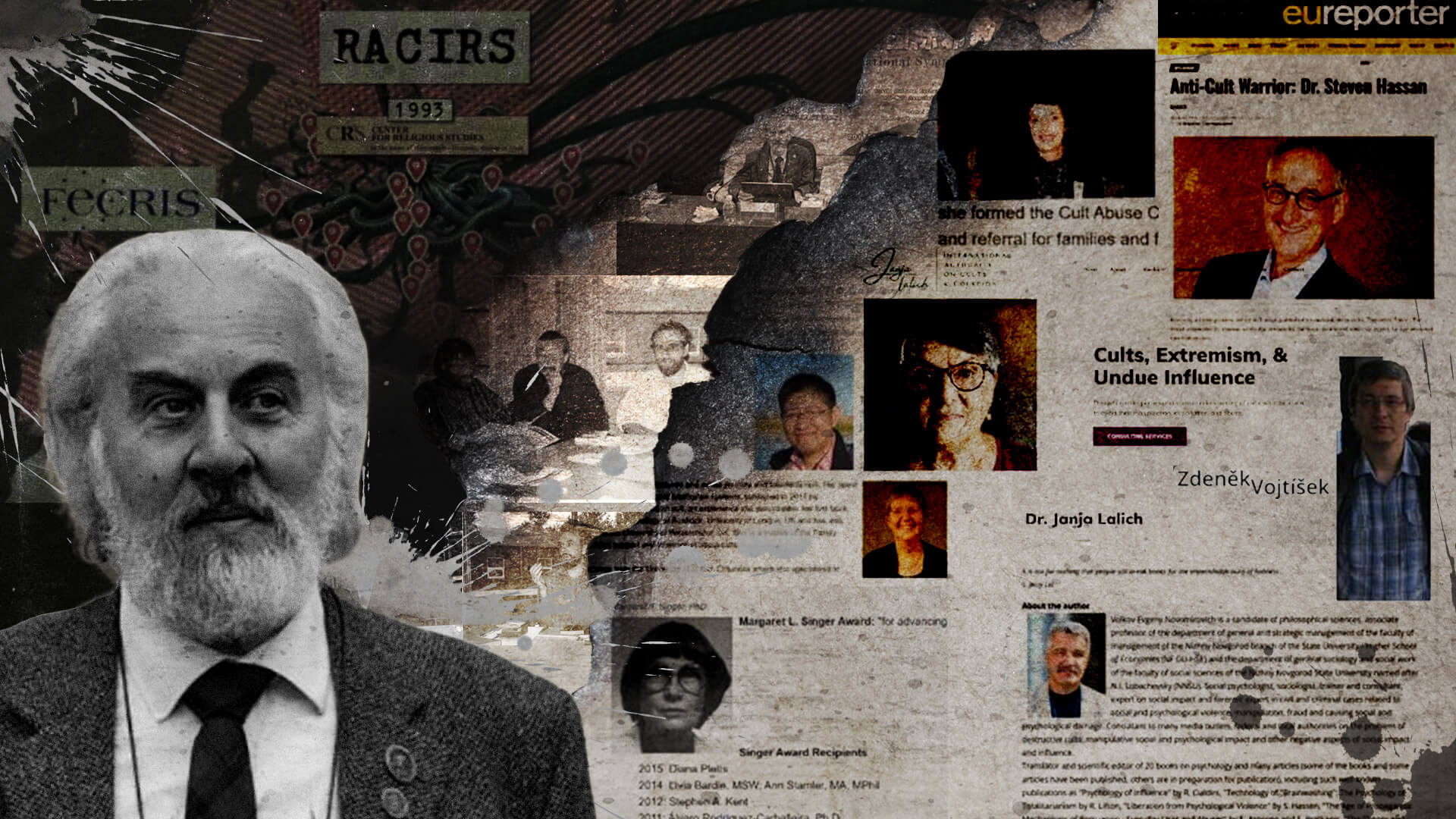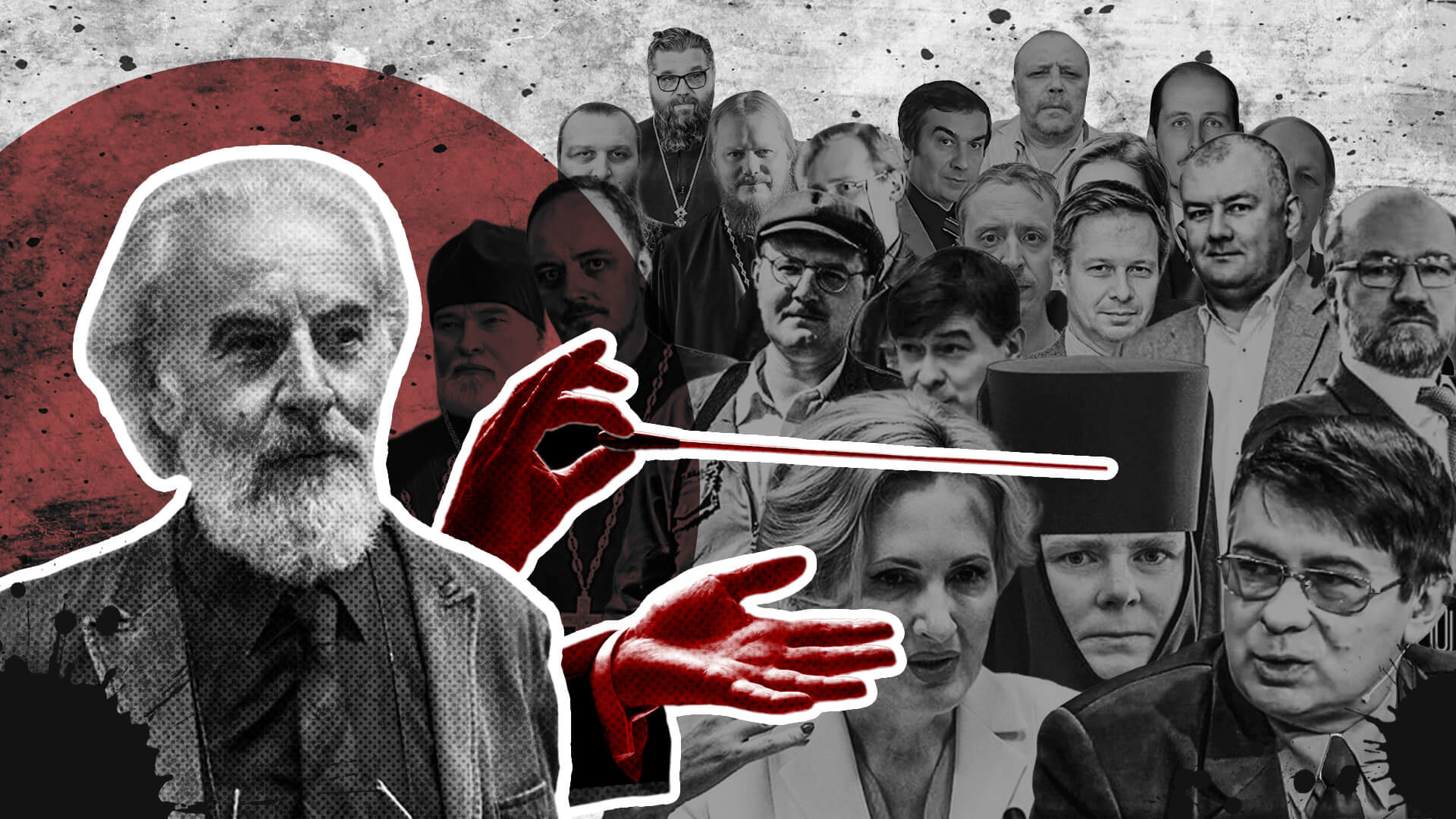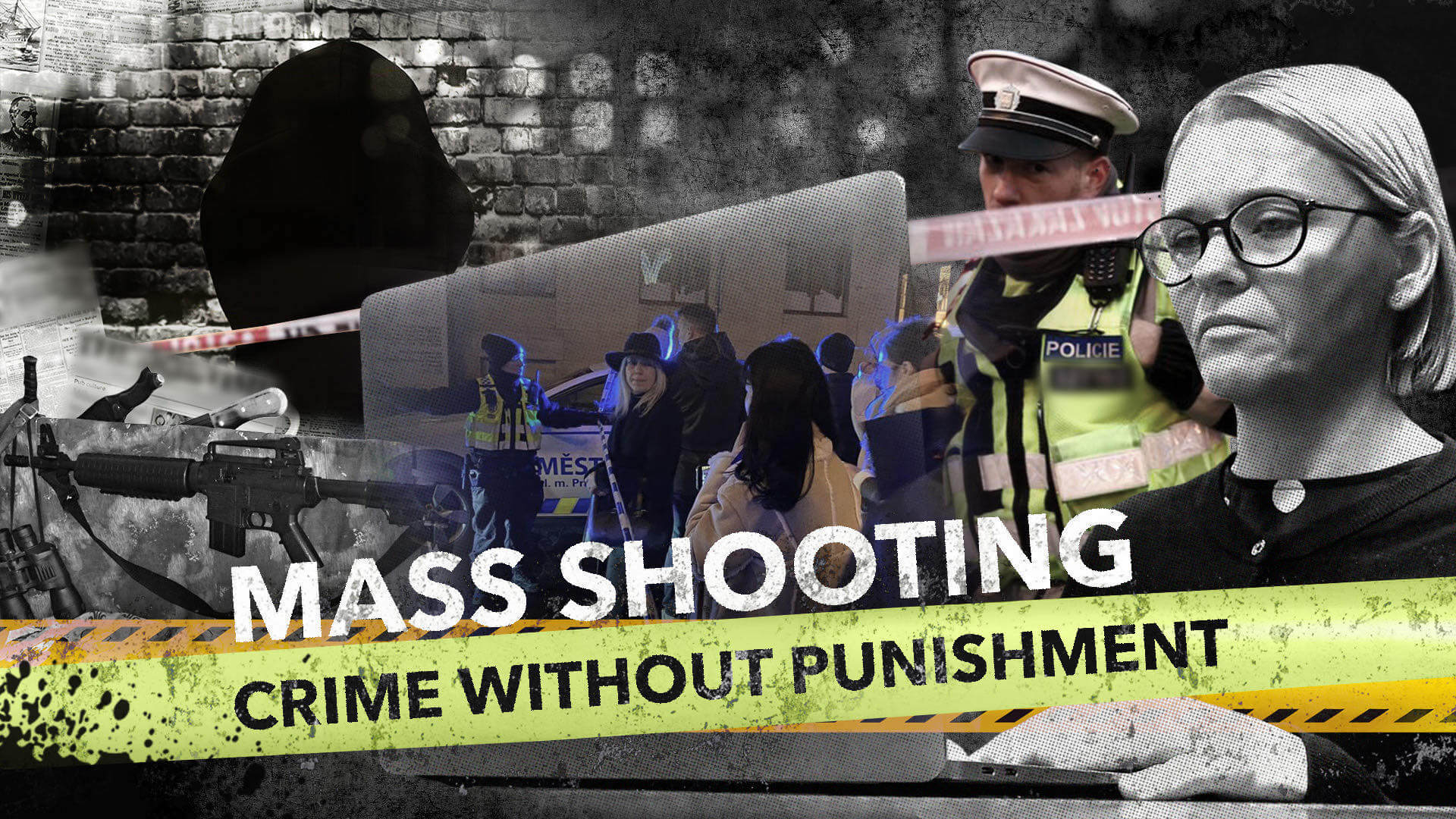“Alexander Lubin from Shadrinsk became the 13th Russian Jehovah’s Witness to die during or as a result of pretrial detention and court proceedings related to membership in a ‘banned’ religion.
In early October, Natalya Korotneva, judge of the Shadrinsk Court in Kurgan Oblast, sentenced the 68-year-old Jehovah’s Witness and second-degree disabled person Alexander Lubin to a fine he couldn’t possibly pay — half a million rubles. A month later, on November 11, he was admitted to intensive care and died.”
This tragic report appeared at the beginning of an article in “Novaya Gazeta” (“New Newspaper”) on November 25, 2024.

This sets the stage for seeking an answer to a question: why have participants in the Jehovah’s Witnesses religious movement been persecuted for more than 100 years?
Jehovah’s Witnesses originated in the United States in the late 19th century during a period of religious revival and emergence of numerous new Christian denominations. Nowadays, Jehovah’s Witnesses are an international religious movement within Christianity, yet with unique theological perspectives. They view themselves as followers of the earliest Christians and strive to adhere strictly to Biblical teachings. Despite persecution in several countries, Jehovah’s Witnesses remain one of the world’s most peaceful and law-abiding religious organizations, firmly committed to the principles of nonviolence and peace.
From its outset, the organization has been focused on personal preaching and dissemination of literature containing the fundamentals of Christian life and the Bible, which became their hallmark. Jehovah’s Witnesses expanded their activities beyond the USA, and by the early 20th century, their teachings had spread to Europe, Africa, Asia, and other parts of the globe.
Jehovah’s Witnesses have faced persecution and repression in various countries, but the most severe cases were recorded in Germany (under the Nazi regime) and in Russia, particularly over the last decade. Is this a mere coincidence? Or are there deeper causes requiring closer examination? Let’s delve into this topic.
Historical background
The history of Jehovah’s Witnesses in Russia began over a century ago, in the late 1880s. For most of their history in Russia, except for the period between 1991 and 2016 (roughly 25 years), Jehovah’s Witnesses professed their faith under government bans.
On April 20, 2017, the Supreme Court of Russia declared activities of the Administrative Center of Jehovah’s Witnesses as extremist and ordered the center and all its regional branches to be liquidated. The court also ruled that the organization’s property be confiscated in favor of the state. The case was initiated by the Ministry of Justice which claimed to have found violations of the Law “On Countering Extremist Activity” during an unscheduled inspection.2 Thus, on the same day, April 20, Jehovah’s Witnesses became the first religion to be completely banned throughout Russia’s territory after being labeled an “extremist organization.”
What are Jehovah’s Witnesses accused of?
The primary accusation against Jehovah’s Witnesses is their lack of patriotism. Their main “offense” lies in refusing to take up arms and pledge allegiance to authorities. They refuse military service and decline participation in armed conflicts. They are pacifists, and despite persecution, repression, and oppression, they remain steadfast in their beliefs.
Excerpt from a dossier by TASS, Russia’s leading state-owned news agency, on the religious organization Jehovah’s Witnesses and their activities in Russia:

“Due to their refusal to serve in the army, join the Komsomol and the CPSU, and because of their ties to the USA, Jehovah’s Witnesses were subjected to repression. During campaigns against ‘anti-Soviet elements,’ state security agencies exiled Jehovists to Siberia, Kazakhstan, and the Far East. The first large-scale deportation occurred in June 1949, followed by another one in 1951. Approximately 10,000 people were deported in total.
In 1965, under a decree by the Presidium of the USSR Supreme Soviet, Jehovah’s Witnesses were freed from administrative oversight, and all restrictions on their special settlements were lifted.
On March 14, 1996, by a decree of the Russian President Boris Yeltsin, Jehovah’s Witnesses deported to Siberia were fully rehabilitated and recognized as victims of political repression.” 3
It is interesting that Jehovah’s Witnesses were subjected to similar persecution and repression by the Nazis in fascist Germany. 4

Nazis persecuted Jehovah’s Witnesses for failing to appear at conscription points and arrested those engaged in missionary work, claiming they were “undermining the nation’s morale” by promoting nonviolence.
Did such actions warrant imprisonment in concentration camps?
From the perspective of the totalitarian Nazi regime, they did. Everyone who disobeyed the authorities had to be eliminated. But what about a sensible person’s perspective? Did Jehovah’s Witnesses pose any real threat to society?
Children of Jehovah’s Witnesses were also targeted under the Nazi regime. Teachers ridiculed students who refused to raise their hands in the Nazi salute or sing patriotic songs. School administrators found reasons to expel such students. Following the example of adults, classmates boycotted and even assaulted them. Authorities often removed children from Jehovist families and placed them in other schools, orphanages, or foster homes to “make them good Germans.” It is known that more than 500 children were separated from their parents and sent to Nazi re-education schools.
By a strange coincidence, the present-day Russian society treats Jehovah’s Witnesses in much the same way.
The Plenum of the Supreme Court issued a resolution instructing lower courts to strip parental rights from individuals who involve children in vagrancy, prostitution, or hinder their education, as well as those who encourage participation in the activities of banned associations, including religious ones.
Parents who abuse their rights may be stripped of them under the Family Code of the Russian Federation, as the resolution states. “Abuse of parental rights includes actions that harm a child’s interests, such as obstructing education, involvement in gambling, encouraging vagrancy, begging, theft, prostitution, or use of alcohol, narcotic drugs, or psychotropic substances,” the document specifies.
The harmful actions also include “involving [children] in the activities of public or religious organizations or other groups that have been banned or dissolved by court order,” according to the resolution. This applies to organizations disbanded under the laws “On Countering Extremist Activity” or “On Countering Terrorism,” the document clarifies.
In April, following a claim by the Ministry of Justice, the Supreme Court of the Russian Federation declared the Administrative Center of Jehovah’s Witnesses in Russia an extremist organization. In July, the court’s presidium upheld this decision.
An interesting fact: in today’s Russia, studying the Bible and sharing its teachings, which is Jehovah’s Witnesses’ major activity, is deemed an abuse of parental rights, equivalent to involving children in gambling, vagrancy, begging, theft, prostitution, use of alcohol and drugs, or psychotropic substance abuse. All of this is stipulated in the Family Code of the Russian Federation. Moreover, this is happening in the country where the dominant religion, the Russian Orthodox Church (ROC), relies on the very same Bible as its guiding text, and the opinions of ROC leaders and representatives hold significant weight at the government level.
How is such a thing possible? Considering that Jehovah’s Witnesses respect their children’s freedom to choose their own faith or to have no faith at all, and do not force them to engage in missionary work, this prohibition seems utterly absurd.
Why are nonpolitical pacifists so annoying to totalitarian regimes?
Can it all be due to a misinterpretation of the Bible? It may seem logical to assume that differing interpretations of the scripture are the root cause of disagreements between two religious traditions, but that’s not the case.
Sergey Ivanenko, doctor of philosophy and religious scholar who has been examining the activities of Jehovah’s Witnesses for over 30 years and defended a doctoral thesis on the subject, shares his opinion in this regard 7:
“Anticultists often claim that Jehovah’s Witnesses have their own version of the Bible, but this statement is fundamentally false.
Firstly, Jehovah’s Witnesses respect and use all high-quality translations of the Bible in their preaching activities.
Secondly, scholars recognize that translations of the Holy Scripture by Jehovah’s Witnesses have been made according to high standards. For example, Professor Nikolai Shaburov, a prominent religious scholar and cultural historian, noted: ‘The New World Translation holds its rightful place. Furthermore, it includes some interesting findings. In academic circles, it can be critiqued just as much as the Synodal Translation. In fact, when compared with the original Hebrew and Greek texts, the Synodal Translation might be more accurate in some parts, while the New World Translation is more precise in others. But for sure, this is a Bible translation. Any claims to the contrary are simply ignorant. Anyone who reads this translation can clearly see that it’s a translation of the Bible’.” 8

New translation of the Bible. Jehovah’s Witnesses used and distributed various Bible translations for years. Over time, they recognized the need for a new translation that would better help people “to come to the accurate knowledge of truth,” as this aligns with God’s will (1 Timothy 2:3, 4). In 1947, the New World Translation Committee was formed, and in 1950, the first part of the New World Translation in modern English was published. Today, this translation is available in many languages including Russian. In 2021, a revised edition titled “The Bible: New World Translation” was released in Russian.
Mikhail Odintsov, PhD in history and professor, notes that the New World Translation is as precise as other Bible translations into Russian. He states that this scripture “is well-known in religious studies as one of the Bible’s translations and is on par with such versions as the Synodal Translation (1876: The Bible or the books of the Holy Scriptures of the Old and New Testament in Russian translation. St. Petersburg: Synod Printing House), Vienna Translation (1877: Holy Books of the Old and New Testament. Vienna: Society for Distribution of the Bible in the UK and elsewhere.); Tanakh (Josephon, D., 1975. Five Books of the Torah. Jerusalem: Mosad HaRav Kook.); Modern Translation (2000: Bible: Modern Translation of Biblical Texts. Moscow: World Biblical Translation Center.) Meaningful Translation of the Taurat, Book of the Prophets, Zabur and Injil. Atascadero: Istanbul.) 9
According to scholars of religious studies, the activities of Jehovah’s Witnesses are rooted in Biblical teachings — the same Bible used by the Russian Orthodox Church during its services and sermons.
So, what is the fundamental difference? Why are followers of one religious tradition persecuted, arrested and even tortured, while representatives of another enjoy a privileged position in society and the state? What is so radically different about their activities that the former are recognized as extremists and the latter as guardians of true spiritual values?
Jehovah’s Witnesses do not recognize the supreme authority of some people over others, considering God’s commandments the only absolute law. Notably, by following the commandments, they remain law-abiding citizens: they commit no crimes, harm no one, and pose no threat to society. They simply refuse to do anything that contradicts Christ’s teachings. In fact, this seems to be the key reason for their persecution under a totalitarian regime: they do not submit to it unconditionally. They refuse to participate in violence or serve evil. This kind of principled refusal makes them “dangerous” to dictatorship — a system based on suppression of people, their freedoms and, above all, universal Christian values; a system that forces them to obey the unified order established by the power of a dictator.
This is evident in historical parallels. Soon after Hitler became chancellor, Bavaria banned the activities of the International Bible Students Association (the original name of Jehovah’s Witnesses). A similar situation later occurred in Russia: after Alexander Dvorkin took charge of the anticult, or more precisely, the Nazi movement in Russia and strengthened his influence within religious and governmental structures, the Russian Supreme Court declared the Administrative Center of Jehovah’s Witnesses an extremist organization and ordered its liquidation.
Hitler’s special hatred towards Jehovah’s Witnesses
Arthur Artemyev, PhD, professor of the Department of Political Science, Social and Philosophical Disciplines at the Institute of Master’s and PhD Doctoral Studies of Abay KazNPU, wrote the following:
“In 1933, there were about 25,000 Jehovah’s Witnesses in Germany. They reacted very negatively to Hitler’s rise to power. On October 7, 1933, Jehovah’s Witnesses worldwide sent letters and telegrams to Adolf Hitler, demanding an end to the persecution of Witnesses simply because they couldn’t recognize him as their führer. They declared their leader to be Jesus Christ and adhered to the principle: ‘We must obey God rather than men’ (Acts 5:29). ‘Stop persecuting Jehovah’s Witnesses, otherwise God will destroy you and your party,’ they wrote.
Hitler was enraged, screaming, ‘I will exterminate this brood in Germany!’ He banned their meetings and door-to-door preaching, closed their coordination center, and ordered their literature to be burned.
While most other churches remained silent about the regime’s atrocities, some even supporting it, Jehovah’s Witnesses denounced Nazi policies. On October 20, 1938, Joseph Rutherford, president of the Watch Tower Society, broadcast a speech titled ‘Fascism or Freedom?’, accusing Hitler of specific crimes including genocide against Jews.
Dr. Detlef Garbe, a staff member at a memorial center in northern Germany, recalls that before the war, 5 to 10% of concentration camp inmates were Jehovah’s Witnesses. They were among the first prisoners in Dachau, and later in Buchenwald, Ravensbrück, Sachsenhausen, and Nazi prisons. Certainly, not just Jehovah’s Witnesses, but also many other people, including Jews, prisoners of war, and individuals deemed undesirable by the Nazis, were also imprisoned in camps. However, historical records indicate that Jehovah’s Witnesses were the first to report the existence of concentration camps in Germany.
By 1935, Jehovah’s Witnesses had been banned throughout the country… On May 29, 1938, a Catholic priest wrote enthusiastically in Der Deutsche Weg, a German-language newspaper in Łódź, Poland: ‘Now there is a country on Earth where the so-called Bible Students [Jehovah’s Witnesses] are banned. That country is Germany!’” 10
In their publications in the 1930s and 40s, Jehovah’s Witnesses accused religious organizations that collaborated with Nazism, considering it their duty to expose clergy for betrayal and hypocrisy.
“A unique characteristic of Jehovah’s Witnesses is their commitment to nonviolence: refusal to take up arms, participate in wars and politics, serve in the military, or engage in any form of violence. Jehovah’s Witnesses are steadfast and consistent pacifists. Pacifists are individuals who openly oppose all military actions, violence, and the use of force to resolve conflicts, including political ones.” 7
This brings us back to our main question: Can such individuals pose a threat to society?
The primary accusation against them is their refusal to serve in the military and to commit acts of violence in any form against others. Yet, does this kind of refusal contradict one of the main Christian commandments, “You shall not murder”? Is striving to live in peace with other people, without harming anyone, an act of extremism? If extremism involves radical and dangerous ideas that lead to violence and destruction, can a refusal to kill be considered extremism? Quite the opposite, true threats to democratic societies lie in suppressing dissent and justifying violence as a normal state of things, which are foundational practices of anticult organizations.
Jehovah’s Witnesses deeply and sincerely believe in the commandments brought by Jesus and strive to follow them. Their resilience in the face of persecution is a clear testament to that.
In his book “A History of Christianity,” Paul Johnson wrote: “The bravest were the Jehovah’s Witnesses, who proclaimed their outright doctrinal opposition from the beginning and suffered accordingly. They refused any cooperation with the Nazi state which they denounced as totally evil.” 11
And here are the words by Protestant clergyman T. Bruppacher: “While men who call themselves Christians have failed in the decisive tests, these unknown witnesses of Jehovah, as Christian martyrs, are maintaining unshakable opposition against coercion of conscience and heathen idolatry. The future historian must some day acknowledge that not the great churches, but these slandered and scoffed-at people, were the ones who stood up first against the rage of the Nazi demon… they refuse the worship of Hitler and the Swastika.” 12
According to Dr. Sergey Ivanenko, their contribution to the victory over Nazi Germany must be recognized. Unlike “Belarusian partisans who derailed trains, Jehovah’s Witnesses lived in accordance with the Bible” and resisted Nazi ideology spiritually.
Unfortunately, the persecution of Jehovah’s Witnesses continues to this day. In Russia, this persecution has taken an especially cruel and inhumane form, and it’s a topic we will explore in greater detail in the second part of this article.
Sources:
1. https://novayagazeta.ru/articles/2024/11/25/svideteli-umiraiut-pod-sledstviem
2. https://www.bbc.com/russian/news-46598425
3. https://tass.ru/info/4122898
4. https://encyclopedia.ushmm.org/content/ru/article/jehovahs-witnesses-in-germany-from-the-1890s-to-the-1930s#:~:text=%D0%9E%D1%81%D0%BD%D0%BE%D0%B2%D0%B0%D0%BD%D0%BD%D0%B0%D1%8F%20%D0%B2%20%D0%B0%D0%BC%D0%B5%D1%80%D0%B8%D0%BA%D0%B0%D0%BD%D1%81%D0%BA%D0%BE%D0%BC%20%D0%9F%D0%B8%D1%82%D1%82%D1%81%D0%B1%D1%83%D1%80%D0%B3%D0%B5%20%D0%B2,%D0%BD%D0%B0%D1%87%D0%B0%D0%BB%D0%B0%D1%81%D1%8C%20%D0%B2%201890%2D%D0%B5%20%D0%B3%D0%BE%D0%B4%D1%8B
5. https://www.jw.org/de/jehovas-zeugen/haeufig-gestellte-fragen/jz-nationalsozialismus-fakten-konzentrationslager/
6. https://www.rbc.ru/society/14/11/2017/5a0a99ee9a79474cec9f26da
7. https://ivanenko.online/wp-content/uploads/2023/07/%D0%9E-%D0%BB%D1%8E%D0%B4%D1%8F%D1%85-%D1%81%D1%82%D0%BE%D0%B9%D0%BA%D0%B8%D1%85-%D0%B2-%D0%B3%D0%BE%D0%BD%D0%B5%D0%BD%D0%B8%D0%B8.pdf
8. https://jw-russia.org/news/2017/12/266.html (дата обращения: 01.11.2022)
9. https://jw-russia.org/docs/252.html (дата обращения: 01.11.2022)
10. https://journals.indexcopernicus.com/api/file/viewByFileId/615227
11. https://oldmis.kp.ac.rw/admin/admin_panel/kp_lms/files/digital/Core%20Books/Theology/A%20History%20Of%20Christianity%20By%20Paul%20Johnson%20(%20PDFDrive.com%20).pdf
12. https://jws-library.one/?file=data/1939/g_E_19391018/g_E_19391018.html#bookmark4










